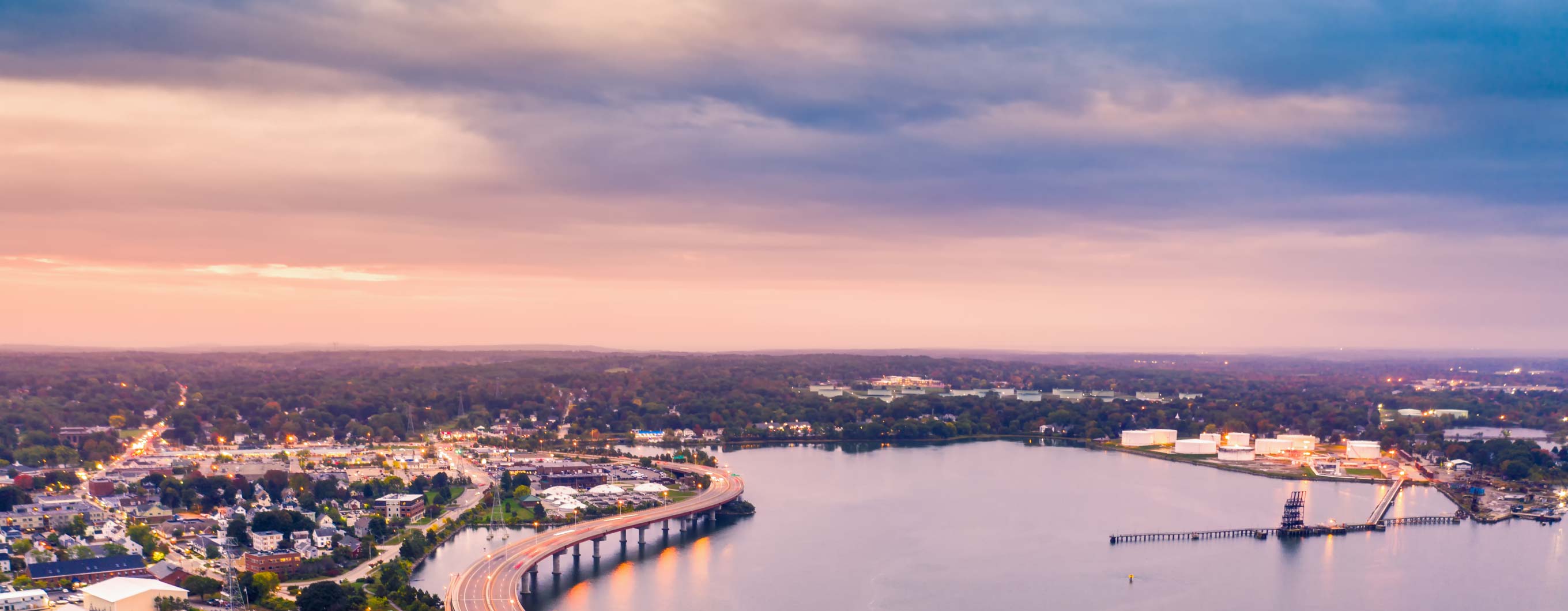
Homeowners Insurance in Portland
For many, a home is likely their biggest investment. Whether you own a vintage Craftsman in Laurelhurst or a modern condo in the Pearl District, having the appropriate protection for your needs matters. Homeowners insurance in Portland could help provide financial protection against risks such as fire, theft, water damage, and more. In a city where wet winters, rising rebuild costs, and shifting climate risks are real concerns, the appropriate policy could help provide peace of mind and financial security.
If you're wondering what kinds of protection are available and what this might cost, you're in the right place. This guide walks you through Portland-specific considerations, common discounts, coverage options, and tips that could help lower your premium, all while helping you stay informed about your choices.
How much is the average homeowners insurance in Portland?
The average cost of homeowners insurance in Portland, OR is around $1,295 [1] per year. Understanding your home insurance cost in Portland, Oregon, begins with knowing the recent trends.
The table below outlines the average cost of homeowners insurance in Portland over the past five years.
Keep in mind, these are statewide figures. Your rate might vary based on where you live. Factors like home value, local weather, and population could affect your premium.
Year | Average Annual Premium [2] |
|---|---|
2025 | $1,305 |
2024 | $869 |
2023 | $723 |
2022 | $1,105 |
2021 | $1,023 |
What factors influence my home insurance rate?
Several variables could affect the cost of homeowners insurance in Portland. Some are within your control, while others are based on regional or environmental conditions:
- Location and ZIP code: Areas prone to flooding, wildfire exposure, or high crime rates could face elevated premiums. For example, homes near the Willamette River or located close to forested areas, such as Forest Park, might carry an increased risk.
- Home value and rebuild cost: The more it would cost to rebuild your home, the higher your premium could be. In a city like Portland, where inflation has increased construction costs, this could influence insurance pricing.Home insurance companies often consider rebuild costs when quoting premiums. As construction expenses rise, the replacement cost value (RCV) may increase, which can result in higher premiums for homeowners.
- Roof type and condition: A newer roof made of durable material could lower rates. Roofing materials, such as metal or impact-resistant shingles, often offer better protection against wind and hail damage. Insurance providers might offer discounts for newer roofs that reduce the likelihood of water intrusion or collapse.
- Home age and construction materials: Older homes or homes made of less fire-resistant materials might cost more to insure. Historic homes, common in Portland’s east side neighborhoods, might require specialized repairs, increasing claim costs. Outdated wiring or plumbing might also pose a higher risk of fire or water damage.
- Claims history: A clean claims history could save you money. Insurers reward customers who haven't filed many claims, often with discounts. On the flip side, having multiple past claims could lead to higher rates. Many home insurance companies in Oregon use a CLUE report to check your home and auto claims from the last seven years.
- Credit score: In Oregon, insurers may use your credit score to determine risk. A higher credit score often results in reduced premiums.
- Coverage amount: The coverage amount you choose could also affect your premium. If you want a higher coverage limit to fully protect your home and belongings, you could pay more. However, this additional cost gives you peace of mind that you're better protected in case of a total loss.
Common insurance discounts in Portland
Many insurance companies often offer discounts that could make your policy more affordable. From bundling policies to making eco-friendly upgrades, here are some common discounts you might qualify for:
- Multi-policy discount: If your insurance company provides more than just homeowners insurance, like auto or renters insurance, you could save by bundling. Buying multiple policies from the same company usually earns you a multi-policy discount.
- Loyalty discount: Some insurance carriers reward homeowners who stay with them for a long period of time. The longer you stick with them, the more you might save. However, note that loyalty doesn't always mean the best deal. It's better to compare Portland homeowners insurance costs every year to make sure you’re still getting the best price.
- Advance quote discount: Often, homeowners in Portland could get a discount if they plan ahead. Many insurance companies may reduce your premium if you request home insurance quotes in Portland, Oregon one or two weeks before you need the policy to start. This is known as an advance quote discount, and it's an easy way to save.
- New home discount: If your home was built recently, you might qualify for a new home discount. Newer homes are usually built to modern safety codes, which makes them less likely to have costly damage. Most insurers consider a home "new" if it's less than 10 years old.
- Green home discount: Eco-friendly houses could also qualify for savings. If your home or property has Energy Star-rated appliances, is LEED-certified, or includes other sustainable features, you might earn a green home discount. These upgrades not only help the planet, but they could also reduce your insurance premiums.
What does home insurance in Portland typically cover?
Standard Portland home insurance policies typically include the following types of coverage:
- Dwelling coverage: This pays to repair or rebuild your home if it's damaged by a covered peril, such as fire, wind, or hail. This covers structural components such as walls, roofs, and built-in fixtures essential to your home's integrity.
- Personal property coverage: This part of your policy covers personal belongings inside your home. It can include furniture, clothing, appliances, and your heating or cooling systems. If you own expensive items such as jewelry, fine art, or collectibles, you might need to purchase extra coverage to fully protect them.
- Other structures: Detached structures on your property – like a garage, shed, barn, outdoor fireplace, fence, swing set, or wall – are often also covered. Recreational items, such as trampolines or swimming pools, might also be included. However, because they pose a higher risk, you might need additional liability coverage.
- Loss of use: If your home becomes unlivable due to a covered event, loss of use coverage could help pay for temporary living expenses. This could include hotel stays, restaurant meals, or parking fees. Keep in mind that policies have set limits and timeframes, so check your policy details to know what's covered.
- Personal liability coverage: Liability coverage helps protect you financially if someone is injured on your property and decides to sue. It could help pay for legal costs, settlements, and medical expenses.
Coverage and availability might vary depending on the underwriting carrier. Consult with a licensed insurance producer to determine your eligibility and explore available options.
Additional Portland insurance coverage options
Given Portland’s specific risks, from wet winters to the rare but serious earthquake, it may be worth considering additional endorsements or policies. Some additional coverage options homeowners often explore are:
- Flood insurance: Standard homeowners policies do not cover flood damage. Given Portland’s proximity to rivers and frequent rain, homeowners may want to consider a separate flood policy.
- Earthquake insurance: Portland is situated within the seismically active Cascadia Subduction Zone, making earthquake risk a significant concern. While standard policies don’t cover quakes, earthquake insurance can often be added as an endorsement.
- Sewer backup coverage: Portland's aging infrastructure could lead to sewer or sump pump backups; this coverage could help protect against resulting damage.
- High-value item coverage: Jewelry, art, or electronics exceeding base policy limits might need separate scheduling.
- Green home coverage: Some policies offer endorsements that replace materials with eco-friendly alternatives if you rebuild.
What Portland residents need to know
There are a few city-specific considerations that every Portland homeowner should keep in mind:
- Rain and flooding: Portland receives an average of 36 inches of rain annually. While this doesn't always mean flood-level damage, it could increase mold, water damage, and foundation risks.
- Wildfires: Though less exposed than other parts of Oregon, wildfire risk in Portland’s outer areas, especially near Forest Park or Mount Tabor, has increased in recent years.
- Seismic activity: Portland, Oregon, lies near the Cascadia Subduction Zone, with the state experiencing over 1,000 earthquakes above magnitude 1.0 each year, and around two dozen strong enough to be felt. While not an everyday concern, the risk of a major earthquake should be considered.
- Tree and wind damage: Portland's older, tree-lined neighborhoods often face risks from falling limbs during wind or snowstorms.
- Housing market trends: Rising rebuild costs, driven by inflation and material shortages, could impact insurance rates city-wide.
Being aware of these factors could help you select appropriate coverage and prepare for risks specific to the region.
Tips to lower your Portland home insurance premium
Reducing your Portland homeowners insurance premium doesn't have to be complicated. Here are some tried-and-true strategies:
- Perform regular maintenance: A home that's in good shape is less likely to have claims, and that can help keep your premiums in check. If you've got a musty basement in Worthington or worn-out wiring in a 1920s Short North bungalow, tackle those projects now before they turn into expensive problems. Simple fixes, like sealing foundation cracks, cleaning gutters, or replacing old pipes, show your insurance company that you're proactive. And that could go a long way in reducing your risk profile.
- Don't just auto-renew; shop around: It's easy to let your policy auto-renew every year, but that could cost you. Instead, obtain at least three quotes when your renewal date approaches. Different insurers weigh things such as Portland ZIP codes, proximity to a fire station, or your home's age in different ways, so shopping around could reveal a lower rate for the same (or better) coverage.
- Skip small claims when you could: Yes, home insurance could help, but not every problem needs to be filed. If your fence gets damaged in a windstorm or a window breaks during a backyard soccer match, it might be cheaper in the long run to pay out of pocket. Filing multiple small claims could flag you as a higher risk, which might lead to premium increases or even non-renewal. Save your coverage for the bigger stuff, like a kitchen fire or severe water damage, and handle the little things on your own when possible.
Still have questions?
Interested to learn more about Portland home insurance? Here are some frequently asked questions.
What salary do you need to live comfortably in Portland?
To live comfortably in Portland, a single person typically needs a salary of about $110,023 per year. This accounts for housing, transportation, healthcare, and basic living expenses.
How much is the property tax in Portland?
Portland’s average effective property tax rate is 1.08% of a home’s assessed value. This could vary slightly depending on specific tax districts and levies.
What is not covered by homeowners insurance in Portland?
Standard policies typically have multiple exclusions. For instance, they don't cover flooding, earthquakes, or damage due to poor maintenance. Portland residents should consider separate flood and earthquake coverage, especially if living near the Willamette River or in older homes.
Can renters get insurance in Portland?
Yes. Renters insurance is widely available and affordable. This covers personal belongings, liability, and loss of use. This is ideal for tenants in apartments, condos, or single-family rentals.
Sources
1 Information from NerdWallet
2 Information from Quote Wizard,Yahoo Finance, PolicyGenius, and NerdWallet.
3 Information from NerdWallet
This article is for informational purposes only and was compiled from sources not affiliated with Hippo. While we believe this information to be reliable, we do not guarantee its accuracy or completeness. For any insurance-related decision, please consult your licensed insurance producer.



